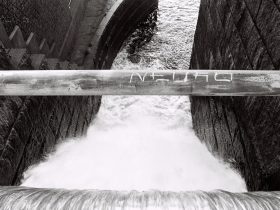Investing in clean water solutions is not only a responsible choice but also a lucrative opportunity. However, navigating ethical dilemmas in these investments can be challenging. Balancing financial returns with ethical considerations requires careful analysis and decision-making. In this article, we will explore some common ethical dilemmas that arise in investments in clean water solutions and discuss strategies for effectively navigating them.
Ethical Dilemma 1: Balancing Financial Returns and Affordability
One of the primary ethical dilemmas faced in investing in clean water solutions is the balance between financial returns and affordability. While clean water is essential, it is not always accessible or affordable for everyone. Investors must find a way to make clean water solutions economically viable without compromising accessibility.
Strategies for Navigating the Dilemma:
- Collaborative Partnerships: Invest in collaboration with local communities, governments, and nonprofits to ensure that clean water solutions are designed to be affordable and accessible for all. By involving stakeholders in the decision-making process, you can address their needs while maintaining financial viability.
- Innovative Financing Models: Explore innovative financing models, such as microfinance or public-private partnerships, to make clean water solutions more affordable. These models can help distribute the financial burden more equitably while still generating returns for investors.
- Long-Term Perspective: Take a long-term perspective when evaluating investments in clean water solutions. While immediate financial returns may be lower, the long-term benefits of providing affordable and accessible clean water can create a sustainable and profitable investment opportunity.
Ethical Dilemma 2: Environmental Impact and Sustainability
Investments in clean water solutions should prioritize environmental impact and sustainability. However, the dilemma arises when investors must make decisions that balance profitability with the protection and conservation of natural resources.
Strategies for Navigating the Dilemma:
- Environmental Due Diligence: Conduct thorough environmental due diligence before investing in clean water solutions. Assess the potential environmental impact of the project and ensure that appropriate measures are in place to minimize harm to ecosystems and water resources.
- Adoption of Green Technologies: Invest in clean water solutions that incorporate green technologies and sustainable practices. Technologies such as water-efficient systems, renewable energy sources, and natural treatment methods can reduce the environmental footprint and enhance sustainability.
- Engagement with Environmental Experts: Seek advice and guidance from environmental experts and organizations to ensure that investments align with best practices for environmental protection. By involving experts, you can navigate the ethical dilemmas associated with environmental impact more effectively.

Ethical Dilemma 3: Socioeconomic Equity and Inclusive Access
Socioeconomic equity and inclusive access to clean water are ethical imperatives in investments. However, investments may inadvertently exclude marginalized communities or perpetuate existing inequalities.
Strategies for Navigating the Dilemma:
- Community Engagement: Engage with local communities to understand their specific needs and concerns. Involve them in the planning, implementation, and monitoring of clean water projects to ensure that investments are inclusive and address the needs of all community members.
- Targeted Interventions: Prioritize investments in areas with limited access to clean water, especially in underserved communities. By targeting interventions, you can contribute to reducing socioeconomic disparities in access to clean water.
- Capacity Building and Empowerment: Invest in capacity-building initiatives that empower local communities to be actively involved in the management of clean water resources. This can help ensure the long-term sustainability of investments and foster a sense of ownership among community members.
Ethical Dilemma 4: Responsible Corporate Governance and Transparency
Investors in clean water solutions must navigate the ethical dilemma of responsible corporate governance and transparency. It is crucial to ensure that investments adhere to ethical business practices and that stakeholders have access to accurate and transparent information.
Strategies for Navigating the Dilemma:
- Ethical Codes of Conduct: Develop and adhere to ethical codes of conduct that outline the company’s commitment to responsible investing and corporate governance. This can help guide decision-making and ensure that investments align with ethical principles.
- Transparency and Reporting: Maintain transparency in the investment process by providing accurate and timely information to stakeholders. Regularly report on the social, environmental, and financial performance of clean water investments to demonstrate a commitment to transparency.
- Stakeholder Engagement: Actively engage with stakeholders, including local communities, regulators, and investors, to ensure their voices are heard and their concerns are addressed. This can help build trust and enhance responsible corporate governance.
Ethical Dilemma 5: Balancing Short-Term Profitability and Long-Term Impact
Investments in clean water solutions often require a long-term perspective to achieve sustainable impact. However, investors may face the dilemma of balancing short-term profitability with thelong-term benefits and impact of their investments.
Strategies for Navigating the Dilemma:
- Impact Measurement and Evaluation: Implement robust impact measurement and evaluation frameworks to assess the long-term benefits and effectiveness of clean water solutions. This helps investors make informed decisions by considering both financial returns and the broader societal and environmental impact.
- Patient Capital: Embrace the concept of patient capital, which involves investors willing to wait for longer-term returns while prioritizing positive social and environmental outcomes. Patient capital allows for investments in clean water solutions that may take time to generate significant financial returns but have a profound and lasting impact.
- Education and Awareness: Promote education and awareness about the importance of long-term impact in clean water investments. By highlighting the value of sustainable solutions, investors can attract like-minded individuals and institutions who prioritize the long-term benefits over short-term gains.

































